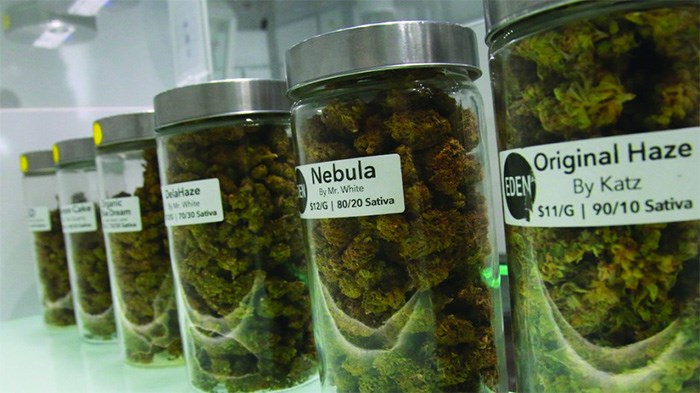Six years ago, the consumption of marijuana became legal all over Canada. This was one of the promises made by Justin Trudeau in the 2015 federal election campaign, where his Liberal Party started in a distant third place and ended up forming a majority government.
This year, 62 per cent of Canadians told Research Co. they agree with marijuana being legal in Canada, down two points since 2023. A third of Canadians (33 per cent, up two points) disagree.
Support for legal cannabis is highest in Quebec (66 per cent), followed by Alberta (64 per cent), Ontario (also 64 per cent), British Columbia (60 per cent), Atlantic Canada (56 per cent) and Saskatchewan and Manitoba (53 per cent). Fewer than half (45 per cent) of East Asian Canadians agree with marijuana being legal, compared with majorities of respondents who identify as South Asian (57 per cent), European (67 per cent) or Indigenous (75 per cent).
The needle did not move markedly from last year on consumption. About half of Canadians have never tried marijuana (52 per cent, down one point), while a third (33 per cent, unchanged) used it before it was legal and 14 per cent (up one point) only acquired it after it became legal—a proportion that rises to 24 per cent among those aged 18 to 34.
A promise related to legalization was the disappearance of the “black market.” In our survey, 51 per cent of consumers (up three points) tell us that all of their cannabis was acquired at a licensed retailer. This leaves two in five users who say “most” (16 per cent), “some” (10 per cent) or “none” (14 per cent) of their cannabis was bought at a licensed store.
In B.C., just 39 per cent claim that all of their cannabis was bought at a licensed retailer. It’s clear, six years after legalization, that there is still plenty of “illegal cannabis” out there.
Discussions about decriminalization—inherently tied to the current crisis related to the use of prescription and non-prescription opioid drugs—have not made Canadians more supportive of a blanket legalization of all substances.
This year, fewer than one in seven Canadians said they would legalize ecstasy (15 per cent, up three points), powder cocaine (14 per cent, up two points), heroin (12 per cent, up two points), crack cocaine (also 12 per cent, up two points), methamphetamine or “crystal meth” (also 12 per cent, up three points) or fentanyl (10 per cent, up one point). In each of these cases, women are more opposed than men.
There is movement on two questions. More than three in five Canadians (63 per cent, up five points) think companies in Canada should be able to administer “drug tests” to any employee now that marijuana is legal. Conservative Party voters in 2021 are more likely to endorse “drug tests” (73 per cent) than those who supported the Liberals or NDP (60 per cent each) in the last election. Support for this guideline is higher among those aged 55 and over (66 per cent) than among those aged 18 to 34 (63 per cent) and those aged 35 to 54 (60 per cent).
Finally, practically three in four Canadians (74 per cent, up five points) agree with the federal government providing expungement orders to people convicted of simple possession of marijuana, defined as “possession for personal use with no intent to traffic.” As time passes, more Canadians believe it is unfair for these individuals to be singled out for an activity that many are enjoying lawfully now.
Our survey shows that legalization has worked on some levels, but not on others. The idea of Canada as a lawless land where anything and everything can be bought at a store has not panned out. We continue to see Canadian marijuana users say that half of their product was bought at a licensed retailer. Canadians who like marijuana are still splitting their time between a store and “something else, somewhere else.”
Mario Canseco is president of Research Co.
Results are based on an online survey conducted from October 13-15, 2024, among 1,001 adults in Canada. The data has been statistically weighted according to Canadian census figures for age, gender and region in Canada. The margin of error is plus or minus 3.1 percentage points, 19 times out of 20.


.jpg;w=120;h=80;mode=crop)

